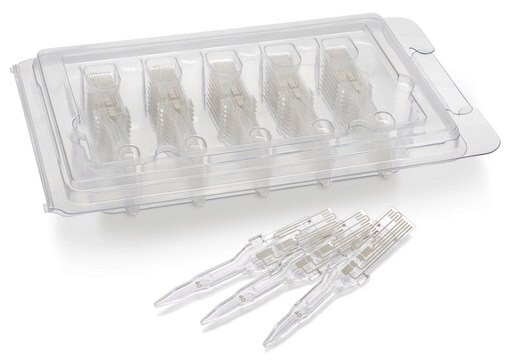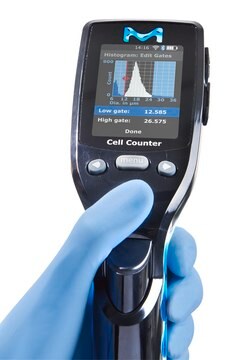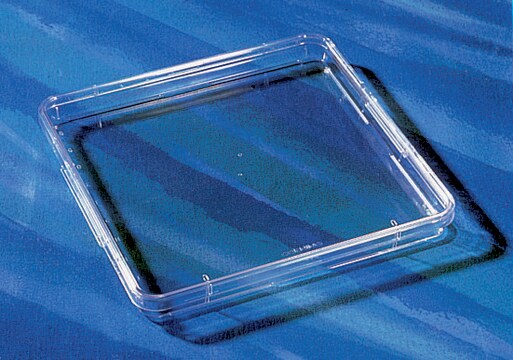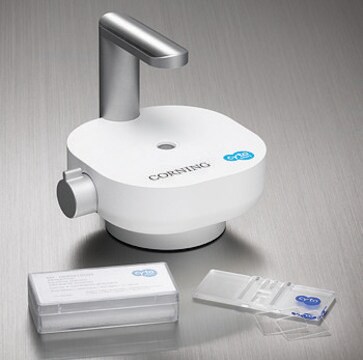PHCC4
Scepter Cell Counter Sensors
40 µm sensors designed to count particles between 3 µm & 17 µm
Synonim(y):
Końcówki do automatycznych liczników komórek
About This Item
Polecane produkty
producent / nazwa handlowa
Scepter
Parametry
50,000 particles/mL particle concentration (1,500,000 particles/mL)
metody
cell counting: suitable
wielkość cząstki
3-18 μm
kompatybilność
for use with cells sized 4.0–12.0 μm
Warunki transportu
ambient
Opis ogólny
The Scepter cell counter’s screen displays:
Cell concentration
Average cell size
Average cell volume
Histogram of size or volume distribution
This system is intended for research use only and has been tested with cell types representative of those in use today.
Coupled with precision liquid handling channels and electronics, the Scepter sensor accurately and reliably provides cell population statistics
Zastosowanie
Cell Culture
Kod klasy składowania
11 - Combustible Solids
Certyfikaty analizy (CoA)
Poszukaj Certyfikaty analizy (CoA), wpisując numer partii/serii produktów. Numery serii i partii można znaleźć na etykiecie produktu po słowach „seria” lub „partia”.
Masz już ten produkt?
Dokumenty związane z niedawno zakupionymi produktami zostały zamieszczone w Bibliotece dokumentów.
Produkty
How do you assess the state of your cell culture? We’ve got some best practices to share.
Using the 40 µm aperture sensor, the Scepter cell counter can accurately and precisely count a broad range of cell types, including small cells such as PBMC and red blood cells.
The Scepter handheld, automated cell counter provides a rapid, reliable alternative to traditional SCC analysis in dairy milk.
This article describes the performance of the Scepter™ Cell Counter from Millipore across multiple cell lines.
Protokoły
The Scepter used in an application to count yeast cells.
The Scepter™ cell counter uses the Coulter principle of impedance-based particle detection to reliably and accurately count every cell in your sample.
Nasz zespół naukowców ma doświadczenie we wszystkich obszarach badań, w tym w naukach przyrodniczych, materiałoznawstwie, syntezie chemicznej, chromatografii, analityce i wielu innych dziedzinach.
Skontaktuj się z zespołem ds. pomocy technicznej


